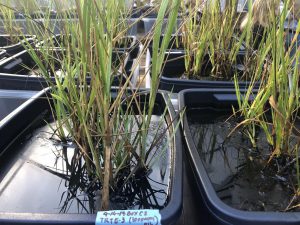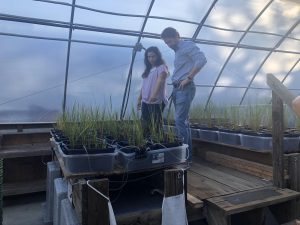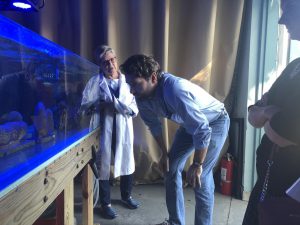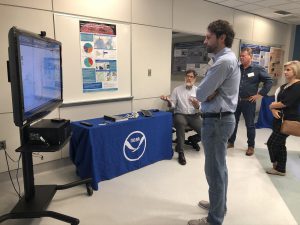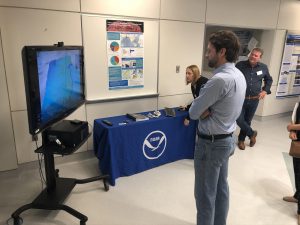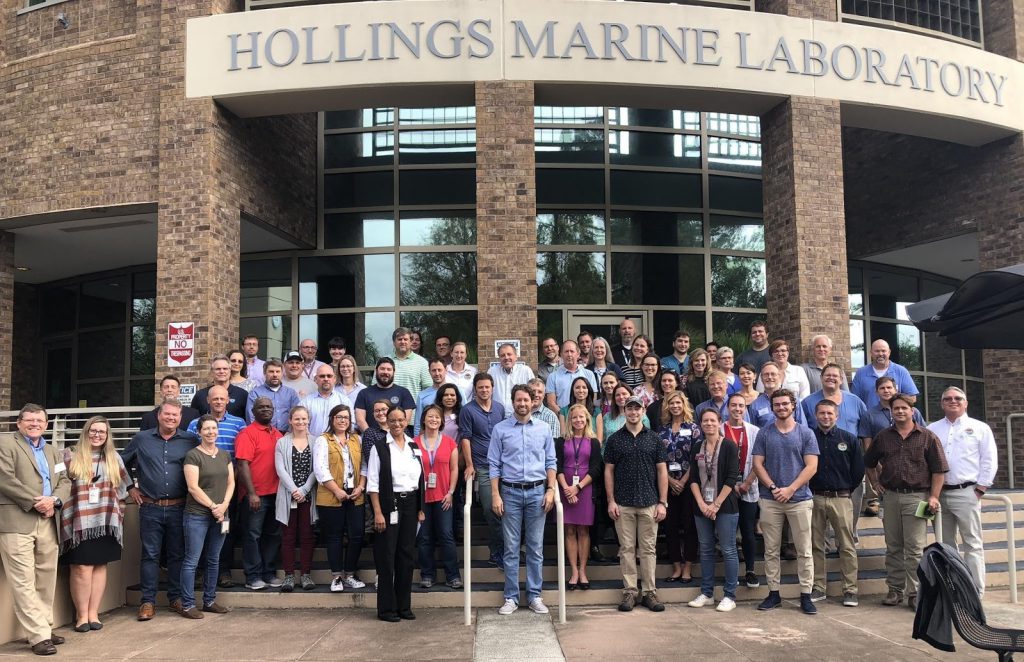
On September 10, 2019, the National Centers for Coastal Ocean Science (NCCOS) Charleston Marine Labs scientists hosted U.S. Congressman Joe Cunningham. Congressman Cunningham toured the facilities to learn more about the diverse and innovative science being conducted by NCCOS across our South Carolina locations, including Oil Spill and Restoration Research, Coral Disease and Health, Deep Coral Ecology and Offshore Exploration, and Harmful Algal Bloom Detection and Mitigation.
The Congressman and staff have expressed high interest in the science of oil spills and restoration, due to their impact on the coastal marine economy, and the need for protection from potential future spills. The mesocosm at the Charleston Marine Lab is used for NCCOS research into refining the protocols for planting native marsh grasses as an oil spill response tactic in coastal marsh environments. The oiled mesocosm is currently being planted with selected treatment regimes and the recovery will be analyzed over a two year period. Additional oil spill and restoration studies are being conducted by NCCOS on shallow and deep coral species, in addition to pioneering emergency care, larval rearing, and genetic banking for coral disease and health.
The NCCOS Hollings Marine Lab is a unique collaboration between NOAA and partners. Participants from NOAA’s National Environmental Satellite, Data and Information Service (NESDIS) and the Office of Oceanic and Atmospheric Research (OAR) provided presentations helping to understand how Office of Exploration and Research (OER) collects deep ocean data for scientists to analyze and then how it is hosted at National Centers for Environmental Information (NCEI).
Hollings Marine Laboratory partners also provided briefings and demonstrations on how scientists from the National Institute of Standards and Technology (NIST) collects and measures environmental contaminants and chemicals such Per- and polyfluoroalkyl substances (PFAS). The College of Charleston and the Medical University of South Carolina introduced many of their students at the Hollings Marine Laboratory in a discussion about the importance of STEM education.
The South Carolina Department of Natural Resources Marine Resources Research Institute showed the Congressman how they use the aquaculture facilities in Hollings Marine Lab to advance understanding of fishery health and stocks of Red Drum in South Carolina.
For more information, or if you’re interested in a congressional lab visit, please contact sean.morton@noaa.gov
